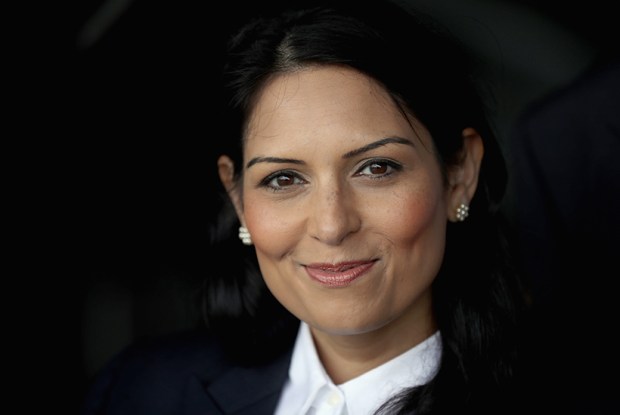Would you find it difficult to remain friends with someone if he or she suddenly revealed that they intended to vote Ukip in the next election? Or perhaps it is the case that you yourself have told friends that you intend to vote Ukip and have seen those dinner-party invitations drying up, or have been shunned by acquaintances in the queue to order your Christmas turkey at Waitrose. A new survey suggests that Ukip is a ‘toxic’ party, with almost a quarter of people (24 per cent) reporting that we would find it hard to remain friends with someone who felt warmth and fellowship towards Nigel Farage.
The implication was that the party itself was at fault for this in some way; that it is full of horrible, vile, people who wish to repatriate the ethnics and then invade Poland. But it is more revelatory about that 24 per cent — they were almost all absolutist, whining liberal lefties, whose capacity for intolerance is unbounded. Dare to gainsay their fatuous world-view and you will find yourself hounded, bullied, ostracised. You may even find your children taken away from you (as happened to a couple of Ukip members not so long ago) — because that 24 per cent has its hands on the levers of state power.
Another survey, a year or two back, suggested you were also likely to be ‘defriended’ on Facebook by lefties if you disagree with something they say — far more likely than you are to be defriended by a right-winger for daring to suggest that, say, slavery perhaps had its downsides, all things considered. These people have the tolerance of the ADHD toddler, pre the administering of several thousand ccs of Ritalin. In essence, they are as flexible of mind and as democratic of spirit as the Islamists to whom they are habituated to offer sympathy and even solidarity. They may not actually chop your head off but — as the writer David Goodhart discovered when he wrote a book which was mildly challenging of the liberal mindset on immigration — they may prevent you from appearing at the Hay-on-Wye literary festival. I suppose, on the grand scale of things, that’s less incommodious than being separated from your own head. But the principle is the same.
You can witness the mentalist tantrums of the metro left every day on the comment boards and in your newspapers. They will be stamping their little feet right now, I suspect, about a report from Resolution, the association representing family lawyers, which suggests that divorce is hugely injurious, academically and emotionally, to the children who get caught up in it. The lawyers suggest that it affects their GCSE results and can result in addiction to drugs and various other traumas. The correct view of divorce, if you are a bien-pensant, is that it’s a bloody good thing, and we should have more of it. Anything which undermines the oppressive institution of heterosexual marriage is good; homosexual marriage, however, is a wonderful institution to which we should all be fervently committed. The liberal left loathe the notion of tax breaks for married couples because it discriminates against much more with-it and right-on couples who wish to shack up for while and maybe squeeze out a few kids while so doing, time permitting.
The ramifications of this ‘marriage-lite’, as the sociologist Patricia Morgan calls it, are even more injurious than those of divorce. But mention this and you are likely to be defriended on Facebook and stopped from attending Hay-on-Wye; such a view casts aspersions on single mothers, you see, and single mothers are absolutely brilliant at bringing up kids and there’s an end to it.
Except: no, they’re not. Cheering as it is to see the family lawyers commissioning a report which makes it clear that their own ministrations are deeply harmful to society, Resolution does not go far enough. Children from broken homes make up 80 per cent of the population of Britain’s psychiatric institutions. Studies from mainland Europe and the UK suggest that children with only one parent suffer twice the incidence of psychiatric illness, alcohol and drug abuse and suicide attempts. They are also more likely to suffer sexual abuse, are more disruptive and less academically able at school, more inclined later to criminality and are overall more aggressive. They are also much, much, more likely to end up unemployed or in low-paid jobs.
Divorce — and I write as a divorcee, and not a proud divorcee — has been catastrophic for two generations of British children. The 1971 Divorce Reform Act was undoubtedly good news for parents who were suddenly gripped by a fervent desire to shag someone other than their spouse — but it was not terribly good news for the children. And it was especially bad for the children in low-income households. If your fissiparous family earned a decent double income and enjoyed a middle-class lifestyle then at least some, if not most, of the effects of divorce could be mitigated for the children — which is why, in the first years after the divorce laws were reformed, it tended to be the middle classes who got unhitched. Because they could afford to do so.
But now everyone’s doing it, because it is a human right, divorce. A couple of years ago I stood outside a jobcentre in Middlesbrough talking to everyone who came in and out. Of the more than 100 people I spoke to, every one — every single one — was either the product of a broken home or had created a broken home. And more than 50 per cent of them ticked both boxes. And they had been ruined by it, financially and emotionally. If you are well off, divorce is bad for the kids. If you are poor, it is utterly calamitous for the kids and the adults both.
Got something to add? Join the discussion and comment below.
Get 10 issues for just $10
Subscribe to The Spectator Australia today for the next 10 magazine issues, plus full online access, for just $10.
Rod Liddle and others will read at the Spectator carol concert, with the choir of St Bride’s: see new.spectator.co.uk/carols
You might disagree with half of it, but you’ll enjoy reading all of it. Try your first month for free, then just $2 a week for the remainder of your first year.















Comments
Don't miss out
Join the conversation with other Spectator Australia readers. Subscribe to leave a comment.
SUBSCRIBEAlready a subscriber? Log in